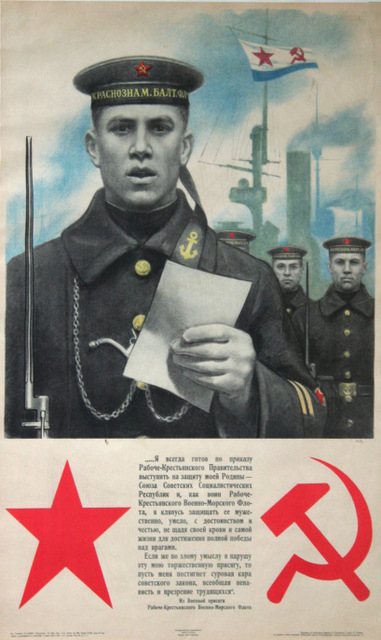|
|||||||||||||
Anarcho-Syndicalism versus Vol. 2: On Organizing the
Post #01
I can't get deeper into this argument now, but this kind of argumentation is why I find such discussions frustrating. Anarchists deny to others that which they demand for themselves. They insist that one can judge communism solely by the concrete results of its adherents. This is seriously problematic because the world is more complex than any theory, therefore practice should be an occasion to reflect on, and transform the theory and subsequent practice. Here Andy insists on the absolute primacy of theory over reality. This is evident when he, and other anarchists, refuse to subject themselves to the same practical standard as communists. Where have anarchists overthrown a single state and implemented their politics? What is the cause? Using Andy's method, we would have to say yes to the first and exaggerate the scope of anarchist success, and then blame all subsequent problems on the Bolsheviks, or whomever is will suffice. If communists fail, it's because of communism, if anarchists fail it's because of…communism. Communists cannot refer to concrete events to account for their practices, while anarchists are free to bring in any factors they choose to. Convenient, but such thinking leads to falsification of both communist and anarchist history. Also, such a blanket statement disregards the millions of people who actually did consider themselves liberated by communist revolutions. BTW, in science, experiments that fail are often re-thought, but rarely are all the key elements rejected.
This is wrong on a couple of levels. First of all, it's disingenuous to lump in countries with disparate histories as if they had a single pathway of development, and secondly, at least in the case of China, the claim is patently false. I'm not familiar with the histories of the other countries but it seems to me that some concrete research is in order. We have here another question of method. Investigation is not necessary if one simply starts with a category: "state", ascribes certain features to such a category [hierarchical, exploitative], throws in every country that has a state and voila – instant analysis without the messiness of research.
Although this sounds very attractive in theory, it avoids the harsh realities of post-revolutionary society. After a revolution, infrastructure is devastated, external forces will work to undermine the revolutionaries, and internally, there is not always agreement among the population about the way forward. Workers are not some undifferentiated mass with a single will, nor are all of them necessarily resolute committed revolutionaries. In this context, how can decentralization function to maintain the integrity of national borders [assuming you have no magic formula for simultaneous international revolution], when resources and personnel will have to be mobilized broadly and quickly? The real world will impose choices that will not always be on favorable terms for your doctrine. All the problems of the old system aren't going to disappear with an overthrow of the ruling class. One problem will be the old bourgeosie will try to regain power. Perhaps the more tenacious problem will be the degree to which the proletariat, including revolutionaries, retain the influence of class society. The path to classless society is not simply to be found in voluntary cooperation, but in struggle. It serves no good to idealize people [part of my criticism of anarchism is that it philosophically relies on some notion of human nature which is inherently freedom-loving and cooperative and needs to freed from the state, but I'll leave that aside for now]. We have had centuries of capitalist indoctrination which is bound to leave deep imprints on our ways of thinking and acting. This is where the bourgeosie will find fertile ground for counter-revolution. I think we should limit hierarchy and authority to the greatest degree possible, but how that looks will be determined in the process of changing society, not in the pages of a book.
Post #02
Greetings, Zerohour,
I have fingers, so I can really type my own arguments myself, but thanks for going so far as to talk about how I "insist on the absolute primacy of theory over reality." This is odd. My comment was "If your experiment has failed every time when thrown into the laboratory of history, what makes you think it'll turn out different next time?" Where is the theory in that? My entire argument, from beginning to end, has been a historical deconstruction and analysis of all human history. And please don't try to sum up my theories, as a means of opposing, because you're doing yourself a disservice. I may as well go up to Thomas Edison and say, "So, vacuuming the air out of a lightbulb, this is the only thing that is going to work to keep the filament from shattering? That's it? When a lightbulb works, it's because it was the air was vacuumed out of it. But when a lightbulb fails, it's because the air wasn't vacuumed out of it? Dear Edison, you are obviously insisting on the primacy of theory over reality, because you demand for yourself what you deny to others!" For all that argumentation, Edison probably would have said, "Uuummm, yeah… You need to vacuum the air out of a lightbulb to get it to work, and if it doesn't have the air sucked out, then it pops when you turn it on. And theory over reality? Yeah, that's why I did over a thousand experiments to reach this conclusion." Fact: the Marxist commander of the Spanish Popular Front surrendered Madrid to the Fascist forces -- Franco entered the city without a fight. [*1] Anarchists, on the other hand, when they are allowed to organize according to their own desires, provided an impeccable front. This was 1936. In the 1870's, virtually the exact same thing happened. Anarchists were on a General Strike, resisting Capitalism and the state. The elected president, who Marx supported, surrendered the country to the crown. [*2] In two centuries, Spain has had Marxist leaders, and each time, they completely surrendered to Fascist and Monarchist forces. "You're insisting on the primacy of theory over reality!" -- No, I'm not. I've based every single bit of my criticism on fact and reality is it has occurred. You're debating me using these weasel words, because you probably don't know the history at all. It's easier to say that I'm blinded by Satan than to actually debate me on arguments.
Oh, so you get to talk about the workers who thought they were liberated by Maoist and Leninist uprisings? What about all the workers who thought they were liberated by Monarchy and Fascism? Or consider Napoleon, on his entrance into the Italian peninsula, during his climb to power. "We're here to liberate you!" And many Italians genuinely felt liberated, just as many Austrians felt the same way. A Liberal Republican as a liberator. And some workers feel liberated by Jesus. What's your argument going to be now? "We can't deny the power of Christianity to effect liberation for the workers, I guess, because workers felt liberated by it… or something." Quoting Emma Goldman from chapter 9 of My Disillusionment in Russia…
It seems like the workers and common people of Russia experienced a horrific revolution. It was certainly not the great establishment of workers' power that you dream it to be.
You mean like how Newton's scientific and mathematical theories completely scrapped all accepted knowledge in science [*3] — this accepted knowledge which had first started developing in ancient Greece and maintained a crucial role in universities for centuries? This entire sentence seems so absurd. Failed experiments don't have any of their "key elements" rejected? What about those machines that "shake the fat" away, by just rubbing your sides? Seems to me that entire experiment has been, well, debunked? And no, that's not a rare case where all the key elements are rejected. Considering all science, and everything that has been purported by scientists, I'm of the other persuasion: the majority of all science experiments do fail, and the majority of their theories are scrapped. Edison failed with the lightbulb more than a thousand times, and each time he worked his way up from scratch. [*4] Are you telling me that the modern lightbulb is a fusion of ideas generated in over a thousand, different experiments? Absolute baffling. You're defending the key concepts of all scientific experiments that have failed, and then you charge ME with making blanket statements? Please…
How is it disingenuous to lump countries together with disparate histories? Lenin, Marx, Mao, etc., certainly have all made that argument about Capitalist countries. Lenin can talk about the dictatorship of the capitalist class in America, Britain, France, Spain, etc., like they're all the same, but I can't? And who really cares anyway. If I reworded it to, "Centralized leadership in China failed. Centralized leadership in Vietnam failed. Centralized leadership in Cuba failed," would that make you happy? Because I know it would bore a lot of people out there. Also, I've already thoroughly researched the dismal failure of the Peoples' Republic of China, and have published my opinions between between ten and twenty pieces. I was, in fact, not citing resources, because there's already a general consensus that executing and murdering workers en masse is not what a Worker Revolution means. Quoting the Anarchist Ba Jin, "… nobody can depict the 'cowshed' prison as a paradise, nor depict inhuman massacre as a 'Great Proletarian Revolution." [*5] Millions of workers were enslaved by Mao and worked to death. ("The Burning Forest: Human Rights in China," by Simon Leys, 1978. As for the five million executions estimate. [*6] According to UN estimates, based on the CPC's official records, more than 11% of Chinese citizens are undernourished or starving. [*7] Quoting Amnesty Internationale, when China refused to give workers rights in recent years, "Many individuals are currently imprisoned solely for exercising and promoting the economic, social and cultural rights enshrined in the covenant. [*8] These include the right to organize free trade unions, the right to strike, or simply for speaking out and organizing around livelihood issues. Some people have been sent to re-education through labor camps or forcibly detained in psychiatric hospitals (AI 2001). Hao Jiangtian is a Chinese-American, and a journalist interviewing him describes exactly what Mao's revolution did for him, "…he grew up in China during the Cultural Revolution when classical music was considered capitalist and decadent. His piano teacher was thrown into prison. His musician parents destroyed all their classical records to avoid the same fate, and many of their colleagues committed suicide." [*9] Yeah, it's easier to accuse me of not having researched this, than it is for you to research it and bring up a counterpoint. Have you even clicked my username to see the list of essays I've written on Mao's cultural revolution, or do weasel words work for you in debate?
The Paris Commune was assailed on the west by the French monarchy, and on the east by the German monarchy. [*10] The Free Territory in the Ukraine fought on its western border the White, Denikinist armies, and on its eastern border, it fought Red, Leninist armies. [*11] (Question: When a Leninist kills an Anarchist, would you consider this a failure of Anarchism and, consequently, a success of Leninism?) The autonomous Shinmin Region was threatened by the Soviet Union and Imperialist Japan. And Anarchist Catalonia was attacked by Spanish Fascists, Italian Fascists, and Nazis, while being boycotted and embargoed by Socialist Parties in England and France. [*12] Liberal France fell to the Nazis in a week, but Anarchists could sustain a united assault of Germans, Spaniards, and Italians for over three years? In every case, the only thing that has ever destroyed an Anarchist community has been the world's greatest butchers, whether it was Stalin or Hitler. And on the contrary, I do believe in a deep union between all workers. The African-Americans who boycotted the bus discrimination in the south -- these people were clearly united together. [*13] Everyone was already on the same page, and it simply took the boldness of the rebels to create a very effective, ant-racist resistance. From the Russian Revolution 1905 [*14] to the one of 1917 [*15], we see workers suddenly join together and create their unity, rising up from illegal organizations -- here, where even speaking about the Social Revolution was a crime, and still, the workers were all on the same page and ready to act. Workers did not slaughter each other openly, until Lenin made his bid for state power. [*16] Andy Carloff, Resources *1. See the Granada documentary film "The Spanish Civil War."
|





